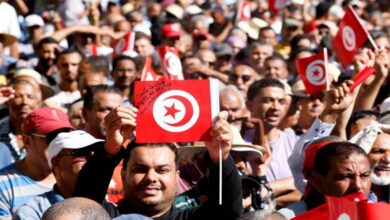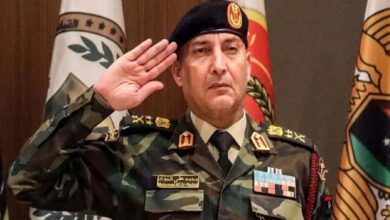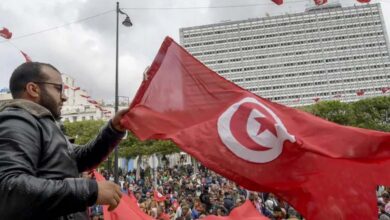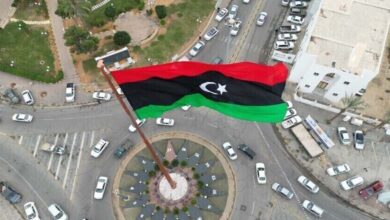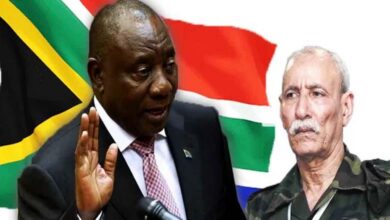Tadjourah ignites: militia clashes amid Tripoli mobilizations
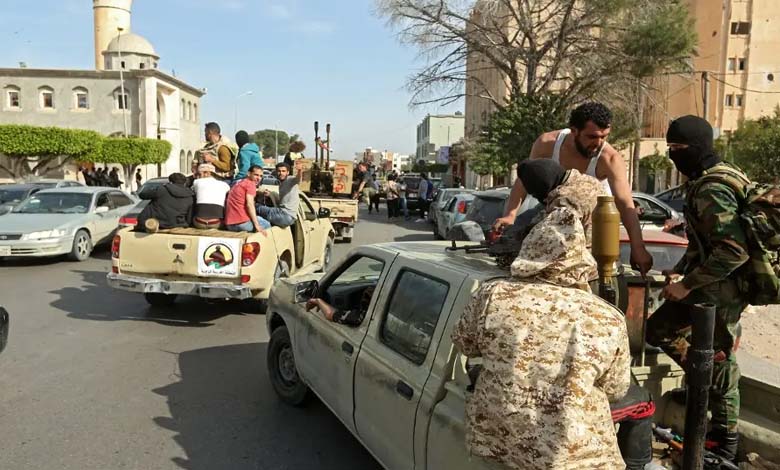
Heavy clashes have erupted in Tadjourah, the eastern gateway to the Libyan capital Tripoli, between rival militias affiliated with the Government of “National Unity.”
According to Libyan sources,” the fighting broke out at dawn on Saturday in the Hay al-Akwakh neighborhood of Tadjourah, near the cardiac hospital.
-
European Union Calls for Withdrawal of Military Forces from Tripoli: The Crime-Fighting Apparatus Denies Agreement with Dbeibah’s Seven Conditions
-
Tripoli on the verge of a new confrontation amid military movements
Militias linked to the outgoing government used both heavy and medium weapons, with gunfire echoing across distant areas.
The same sources reported that one young man was killed and another injured, while the clashes triggered panic and chaos, particularly among hospital patients.
The area remains on edge, with fears of further escalation and the possible involvement of larger armed groups, against a backdrop of widespread mobilization and rising tension across the capital’s districts.
-
Renewed Military Buildup in Tripoli Raises Fears of New Clashes
-
Violence erupts in Tripoli after protesters opposing Dbeibeh are dispersed
Tadjourah, the main eastern entry point to Tripoli, is densely populated with militias such as Rahbat al-Duru‘, also known as “al-Baqara,” the Joint Force, and the Mitiga Air Base – headquarters of the al-Radaa militia, the most powerful in the capital – alongside their local support networks.
Tripoli and its surroundings are thus gripped by an atmosphere of unprecedented tension, marked by sharp militia polarization that threatens to erupt into large-scale confrontation.
-
UN and Regional Efforts to Contain Tensions in Tripoli
-
The Smoke of Tripoli Clashes Still Rises: Political Economic and Security Repercussions
The chaos of militias
These events reflect the ongoing security vacuum that has plagued Libya since 2011, when the fall of Muammar Gaddafi’s regime left behind overflowing weapons stockpiles and unmonitored desert borders.
With more than 29 million weapons circulating outside state control, armed attacks against civilians have become a recurrent occurrence, particularly in western Libya, where rival militias compete for dominance.
-
Benghazi at the Heart of Regional Dynamics: Diplomatic Moves Amid Tripoli’s Turmoil
-
Gheniwa’s Blood Strangles Dbeibah… Tripoli’s Nero Burns in His Own Fire
These developments come just two weeks after UN envoy Hanna Tetteh announced a new roadmap based on three pillars: developing a technical and political electoral framework, unifying institutions starting with the appointment of a new government, and launching an inclusive dialogue to strengthen governance and national participation.
Yet the explosive situation in western Libya now threatens to derail this UN plan, with fears that looming confrontations could shatter any prospects for reviving the political process.






